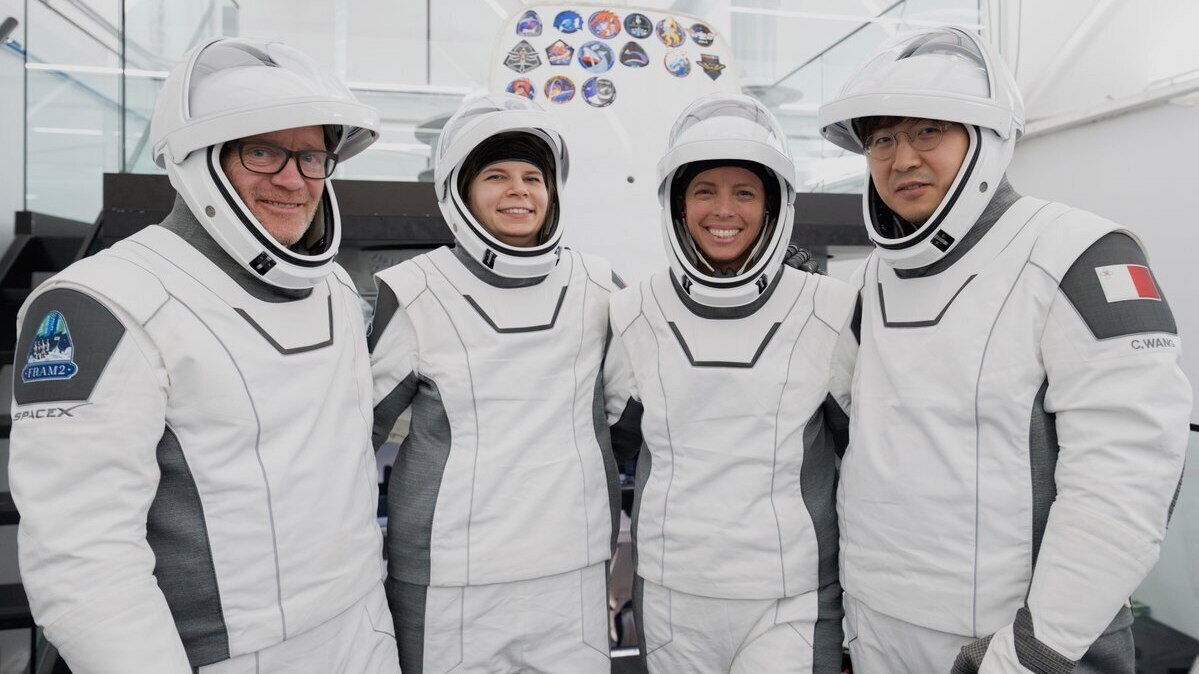
Four space tourists, including an Australian polar adventurer, have returned to Earth after orbiting the north and south poles in a privately funded polar tour.
Bitcoin investor Chun Wang chartered a SpaceX flight for himself and three others in a Dragon capsule that was outfitted with a domed window that provided 360-degree views of the polar caps and everything in between.
The Chinese-born Wang, now a citizen of Malta, invited Norwegian filmmaker Jannicke Mikkelsen, German robotics researcher Rabea Rogge and Australian polar guide Eric Philips on the trip.
Mr Philips is the fourth Australian in space and the first SpaceX astronaut.
The quartet, who rocketed from NASA's Kennedy Space Centre on Monday night (Tuesday morning AEDT), splashed down off the Southern California coast on Friday morning (Saturday morning AEDT).
The crew travelled in a circular orbit around Earth from pole to pole, passing over the icy masses every 40 or so minutes in a particular orbit that no humans have flown before.
"It is so epic because it is another kind of desert, so it just goes on and on and on all the way," Ms Rogge said in a video posted by Mr Wang on X while gazing down from orbit.
All four suffered from space motion sickness after reaching orbit, according to Mr Wang. But by the time they woke up on day two, they felt fine and cranked open the window cover right above the South Pole, he said via X.
Besides documenting the poles from 430 kilometres above, Wang and his crew took the first medical X-rays in space as part of a test and conducted two dozen other science experiments largely focused on how the human body changes in microgravity.
They named their trip Fram2 after the Norwegian sailing ship that carried explorers to the poles more than a century ago. A bit of the original ship's wooden deck accompanied the crew to space.
Their medical tests continued at splashdown. All four got out of the capsule on their own, heaving bags of equipment so researchers could see how steady returning space crews are on their feet. They pumped their fists in jubilation.
It was the first Pacific splashdown by a space crew in 50 years.
SpaceX stated that their choice to change the splashdown locations from Florida starting with this particular mission was driven by safety concerns.
The firm stated that Pacific Ocean splashdowns will guarantee that any remaining fragments of the trunk—which are discarded towards the end of the mission—fall into the sea.
The final individuals to come back from space to the Pacific were the trio of NASA astronauts who participated in the 1975 Apollo-Soyuz mission.
Mr. Wang refused to disclose the amount he spent on the three-and-a-half-day journey.
ABC/Wires